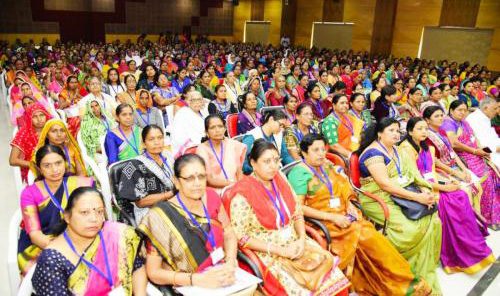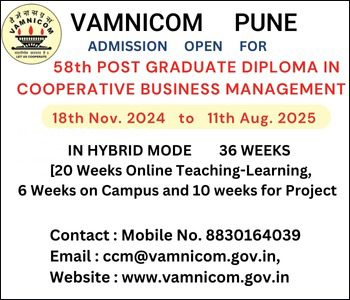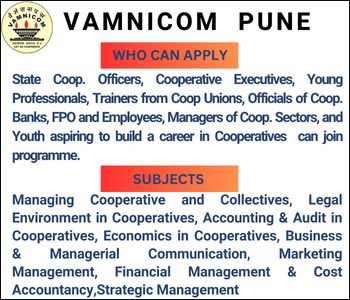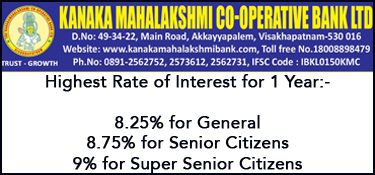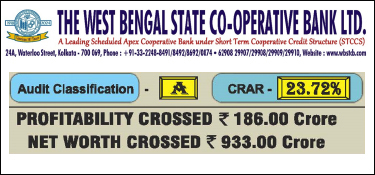SEWA Cooperative Federation, SEWA Bharat, National Cooperative Union of India (NCUI), and the International Cooperative Alliance – Asia Pacific (ICA-AP) have partnered to host the two-day national workshop on December 13 th and 14 th 2022 at the NCUI, titled ‘Strengthening Solidarity: Enabling Women’s Cooperatives and Collective Enterprises to Thrive’.
Nearly 100 co-operators from 20 states in the country will take part in the national workshop, informs a press release issued by NCUI. Dilip Sanghani, Chairman, NCUI, former Minister of Cooperatives, Government of Gujarat, and Chairman, Gujarat State Co-operative Marketing Federation Ltd. (GUJCOMASOL) will be the Chief Guest.
Also addressing the inaugural gathering will be Dr Chandrapal Singh Yadav, President, International Cooperative Alliance – Asia Pacific, and former Member of Parliament.
The workshop will explore four themes over the two days: ease of doing business, access to finance, governance and capacity-building, and digital inclusion, and will develop a set of recommendations to meet the many challenges that women-led cooperatives face.
The recommendations will be presented as a Delhi Declaration of Women’s Cooperatives to the newly established committee framing a new cooperative policy, chaired by Suresh Prabhu.
This workshop emphasises the importance of women’s cooperatives in building back and restoring livelihoods affected by Covid.
While there was a digital transformation happening in the world, with structural shifts towards e-commerce platforms and digital payments in India touching the 100 million payments per day mark, this was not the case for many women’s cooperatives and collective enterprises.
Women cooperators identify marketing as a key driver for the financial sustainability of their enterprises and ultimately their cooperatives. With access to new markets, product diversification, and channel innovation, enterprises increase their customer base and revenue.
Women will share experiences of innovative marketing solutions that they have undertaken and the challenges they continue to face, in both online and offline marketing. Access to finance is another critical factor for the growth of women’s cooperatives.
According to a study by the International Finance Corporation (IFC), enterprises in India face a financing gap of around 70 percent. In order to diversify, innovate, and scale, women’s enterprises need access to finance.
Accessing loans from financial institutions continues to be a challenge because of collateral requirements, high interest rates, and the procedures involved to access finance. In addition, governance of women’s cooperatives is key to sustainability in the long term. Informal women workers’ enterprises need continuous and appropriate capacity-building support and leadership-building inputs, as well as management training, technical knowledge, and skill upgradation.
They also need support for developing their business strategy, for planning, digital literacy, and marketing training which are tailored to their needs. The emergence of the digital economy has transformed the way in which work is organised, both for the worker and for the customer.
Technology has the potential to improve the ways in which women collective enterprises engage with local and global supply chains. However, several challenges remain and women cooperators will suggest ways to move forward on addressing existing barriers and creating an enabling environment.
The participating cooperatives will exhibit and sell their products in a Women Cooperatives’ Bazaar at the NCUI throughout the two-day workshop.





